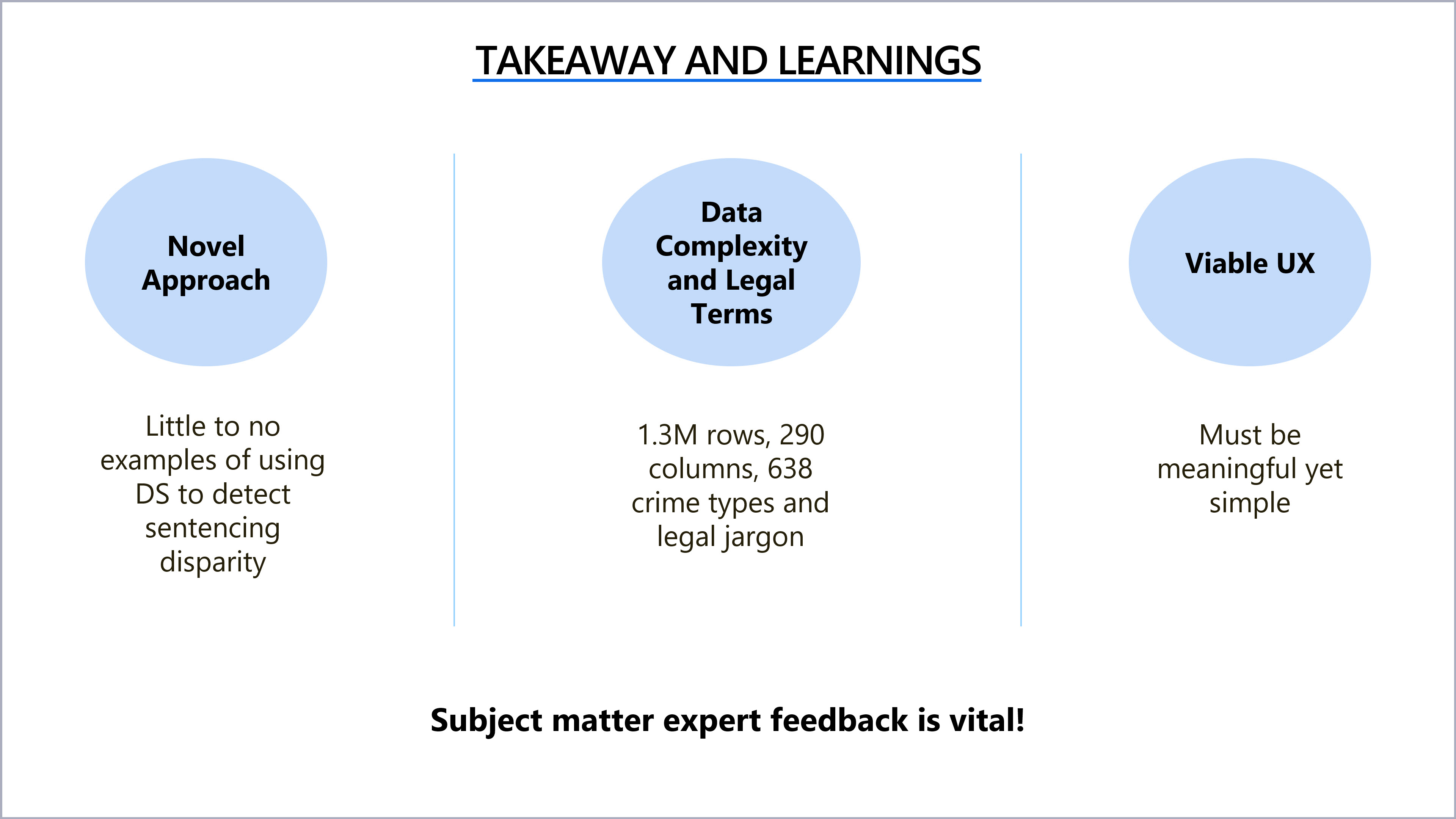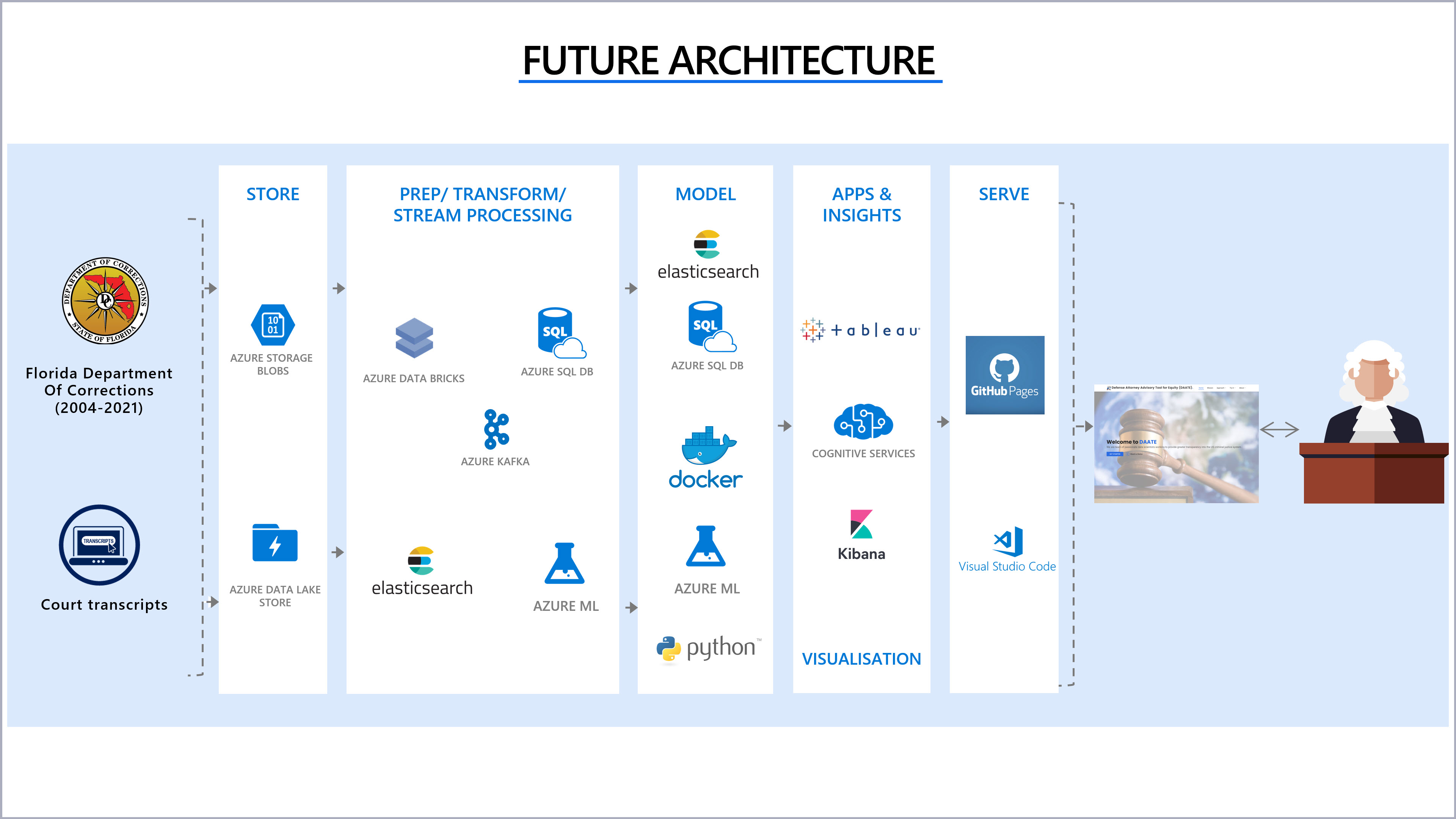DAATE MVP Takeaway and Learnings:
Throughout the development of the DAATE MVP the team encountered several challenges:
Novel Approach: We found little to no examples of applying data science techniques to sentencing data to determine potential disparity in sentencing. We feel this is a fairly new approach and one that should proceed with caution given the nature of the subject. We have learned through our MVP that there are many factors, outside of the data, that can effect sentencing and those must also be considered when discussing sentencing disparity.
Data Complexity: Data from the Florida Department of Corrections (DOC) from 2004-2016 contained 1.3 million rows and 290 columns and we did not have access to a data dictionary. Because no data dictionary was available the team relied heavily on our subject matter experts.
Legal Lingo: Understanding the legal aspects (e.g. criminal codes) was a challenge for the team. To mitigate this and to narrow our focus for the MVP, the team chose three crime types to work with and also realized just how vital having a subject matter expert is to the success of a project like this.
Creating Meaningful Visualizations: Due to the complexity of the data and the sensitivity of the topic, we built visualizations across several dashboards and relied on our subject matter experts for crucial feedback. This was a challenging aspect for us and we learned that starting early in the UX process is key to delivering meaningful results.
DAATE Next Steps:
During the MVP process the team identified some areas for future improvement and focus. This includes:
Extend Work with the Florida DOC Data: Look at adding in counties, crime types and obtaining 2016-2021 data.
Extend Disparity Detection to Prosecutors: DAATE is a tool intended to assist in identifying potential disparity in the criminal system. This disparity can take many different forms and can come from many different sources. Our MVP starts by looking at disparity and judges and adding prosecutors is the next logical step given that 94% of cases end in plea bargain.
Add Sentiment Analysis: In court interaction between legal parties and the defendant may play a role in sentencing. The DAATE team would like to explore this theory by applying natural language processing to court transcripts to determine sentiment analysis.


